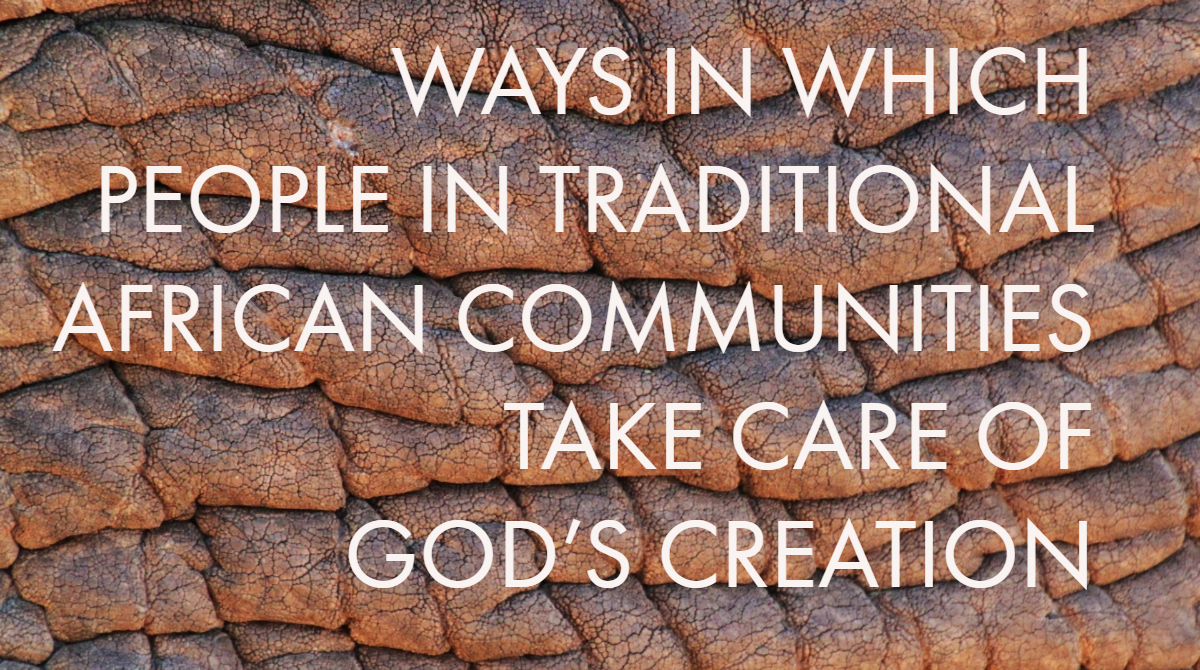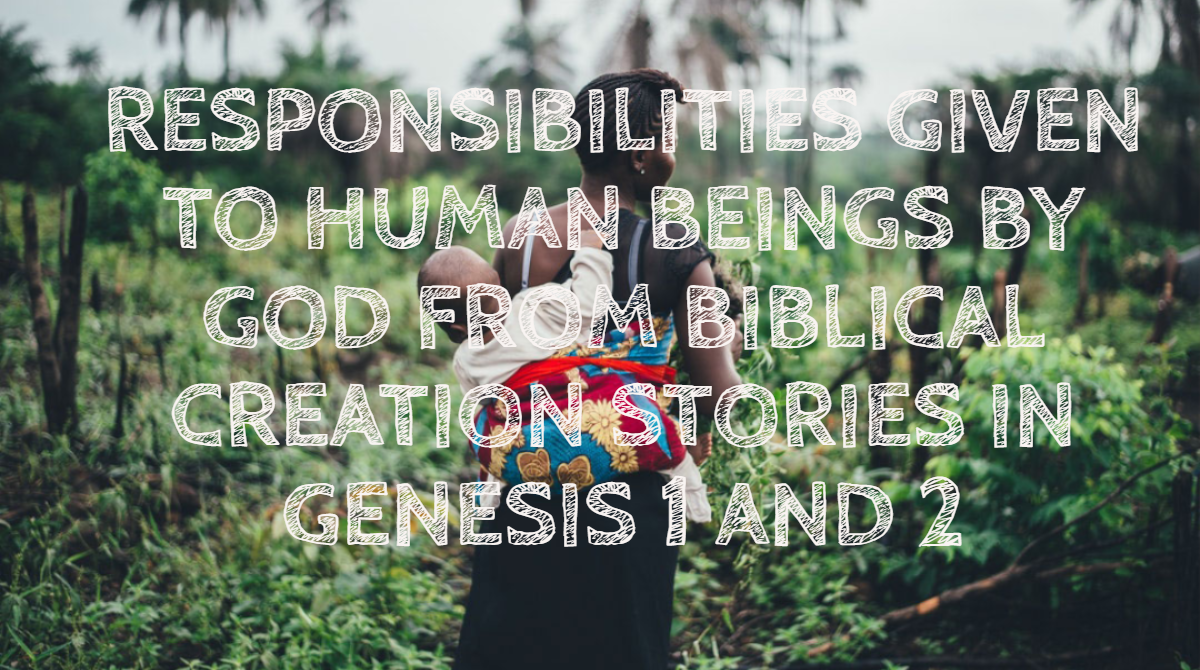KCSE CRE Questions and Answers
|
Pick topics, year of examinations and levels from the list below.
2 Comments
Preparing for death is an important aspect of life, and it becomes even more significant as people age. The process of preparing for death can have both practical and emotional components. Here are some ways in which the aged prepare themselves for their death:
Give five ways through which Christians settle disagreements among themselves
Related Searches ...
Explain four teachings of prophet Amos on social justice and responsibility in Israel.
The teaching of Prophet Amos on social justice and responsibility in Israel.
More resources on;
Obstacles the church is facing in trying to curb injustice in Kenya today.
Related searches;
Relevance of Prophet Jeremiah’s suffering to Christians today.
Related Searches ...
NEXT >> Give seven reasons why pregnancy before marriage is rare in traditional African communities.
The personal life of Prophet Jeremiah
Lessons Christians learn from the incident in which the Israelites broke the covenant at Mount Sinai
Read more on;
Identify seven ways in which God demonstrated His love for the Israelites during the Exodus.10/6/2024 Ways in which God demonstrated His love for the Israelites during the Exodus.
More questions on;
How the Israelites broke the covenant they had made with God at Mount Sinai.( Exodus 32:1-30)
More questions on;
NEXT >> IDENTIFY SEVEN WAYS IN WHICH GOD DEMONSTRATED HIS LOVE FOR THE ISRAELITES DURING THE EXODUS.
Ways in which people in traditional African communities take care of God’s creation
More questions on;
Responsibilities given to human beings by God from Biblical creation stories in Genesis 1 and 2.8/6/2024 RESPONSIBILITIES GIVEN TO HUMAN BEINGS BY GOD FROM BIBLICAL CREATION STORIES IN GENESIS 1 AND 2.
Similarities found in both Biblical and traditional African view on creation.
More questions on;
EXPLAIN HOW WESTERN CULTURE HAS AFFECTED T.A.C (TRADITIONAL AFRICAN COMMUNITIES)(1) TAC Design for buildings became obsoleteThe traditional African designs for building were replaced by western styles (2) TAC religion lost groundChristianity and other foreign religions have replaced traditional African religion. (3) TAC marriage procedures are no longer of importanceInter-ethnic/ inter-racial marriages have watered down traditional marriage rites. (4) TAC leadership systems were rendered obsoleteThe role of elders has been taken over by government leaders such as chiefs and magistrates at the expense of village elders, witch doctors and brave warriors. (5) TAC medicines lost valuePeople prefer modern medicine, going to hospitals as opposed to traditional herbs. (6) TAC songs have been replaced.Traditional African songs and dances have been replaced by western music such as rap, jazz, blues, funk and reggae. (7) TAC social units were brokenUrbanization has led to breakdown of traditional African social units such as village barazas, peace committees and age groups. (8) TAC rainmakers lost their rolesThe role of rainmakers have been taken over by meteorologists. (9) TAC mode of dressing has been eroded.There is over emphasis on the western mode of dressing. Almost every TAC member dress western style; that is a suit and a tie, mini skirts, 'tumbo cuts' etc. Those who dress in TAC ways are regarded as backward and illiterate. (10) Western education eroded African valuesIntroduction of formal education has led to decline of traditional African values. This includes respect for elderly. Western education puts more emphasis on respect for the learned than the elderly.
The importance of bride wealth in traditional African communities.
|
On Sale On Sale CRE Notes Form 1 Revised Edition
€1.14
€1.00
Review: Our CRE Form 1 notes and topical notes kit are the perfect tools to help students achieve their academic objectives and excel in the subject. These notes have been carefully prepared to cover the entire CRE syllabus for Form 1, ensuring that students have a thorough understanding of the material. One of the key features of our notes is the inclusion of support questions at the end of each topic. These questions are designed to test students' understanding and reinforce their learning. By practicing these questions, students can assess their knowledge and identify areas that require further study. The notes are provided in PDF format, making them easily accessible and convenient for students to study anytime, anywhere. We have also taken great care to edit and revise the notes multiple times to ensure accuracy and comprehensiveness. They have been reviewed and recommended by experienced CRE teachers, adding to their credibility and reliability. For a minimal cost of 100 shillings or 1 Euro, students can gain access to these valuable resources. We offer flexible payment options, allowing both local and international students to benefit from our notes. With our notes, students can confidently prepare for their CRE exams, knowing that they have the necessary tools to succeed. In addition to helping students achieve academic success, studying CRE has several other benefits. It allows students to appreciate the evolution of different cultures, understand the contributions of historical figures, and develop a sense of patriotism and nationalism. Furthermore, studying government helps students understand the importance of laws, the functioning of state organs, and their roles as citizens. In conclusion, our comprehensive CRE Form 1 notes and topical notes kit provide students with the necessary tools to excel in the subject. With detailed content, support questions, and the endorsement of experienced teachers, these notes are an invaluable resource for students looking to achieve academic success. Invest in your education today and unlock your full potential in CRE. On Sale On Sale CRE Notes: Form 2 Revised Edition
€1.50
€1.00
Review: The CRE Form 2 Notes provided on Atika School's website are a valuable resource for both teachers and students. These notes have been meticulously compiled using course books such as KLB CRE Form 2, ensuring that they cover all the necessary content. The advantage of using these notes is evident from the positive feedback of teachers and students who have found them to be extremely helpful. One of the standout features of these notes is the inclusion of support questions at the end of each topic. This allows students to test their understanding and knowledge of the subject matter. By practicing these questions, students can reinforce their learning and prepare effectively for examinations. The notes are conveniently provided in PDF format, making them easily accessible and compatible with various devices. They have also undergone multiple rounds of editing to correct errors and incorporate additional content, ensuring their accuracy and comprehensiveness. It is worth noting that these notes have been recommended and approved by experienced CRE teachers. This endorsement further adds to their credibility and reliability. To access these valuable resources, there is a nominal fee of 100 shillings for local payments or 1 Euro for credit card payments. The payment procedure is straightforward and secure, allowing for a hassle-free transaction. In conclusion, the CRE Form 2 Notes provided by Atika School are an excellent investment for students and teachers alike. With their comprehensive content, support questions, and positive recommendations, these notes are a valuable tool to improve understanding and achieve higher grades in CRE. On Sale On Sale CRE Notes: Form 3 Revised Edition
€1.23
€1.00
Review: The CRE Form 3 notes provided in this document are an invaluable resource for students studying Christian Religious Education. Compiled, analyzed, and revised by competent teachers from across the country, these notes offer a comprehensive and detailed understanding of the subject matter. One of the major advantages of using this kit of CRE Form 3 notes is the improved academic performance it guarantees. Both teachers and students who have utilized these notes, along with the accompanying short notes and practice questions, have experienced significant improvements in their grades. The notes have been carefully crafted using course books such as KLB CRE Form 3, ensuring that they meet the expectations of the curriculum. Each topic is accompanied by support questions at the end, allowing students to assess their understanding and prepare effectively for their final KCSE exams. What sets these CRE notes apart is the continuous editing and revision process they have undergone. Errors have been corrected, additional content has been added, and they have been reviewed and recommended by experienced CRE teachers. This ensures that students receive accurate and up-to-date information, making their exam preparation more effective and comprehensive. In conclusion, these CRE Form 3 notes are an essential tool for any student studying Christian Religious Education. With their detailed explanations, practice questions, and continuous improvement, they provide students with the necessary knowledge and skills to excel in their exams. Whether used for self-study or in conjunction with classroom teaching, these notes are a valuable resource that can significantly contribute to academic success. On Sale On Sale CRE Notes: Revised and Updated For Form 4
€1.23
€1.00
Review: Are you struggling to find comprehensive and reliable CRE Form 4 notes? Look no further! At Atikaschool.org, we offer an electronic book containing 152 pages of meticulously crafted notes, designed to help you achieve your objectives in Christian Ethics. Our PDF format notes cover all the topics outlined in the CRE syllabus for Form 4. Each topic is fully covered, providing you with a deep understanding of Christian Ethics. To enhance your learning experience, support questions are included at the end of each topic, allowing you to test your knowledge and reinforce key concepts. What sets our notes apart is the level of attention and care we put into their creation. They have been edited multiple times to ensure accuracy and completeness. Additionally, these notes have been used and recommended by experienced CRE teachers, attesting to their quality and effectiveness. Purchasing our CRE Form 4 notes is a wise investment in your academic success. More than 90% of our customers have given us positive feedback, acknowledging the value and impact of our materials. By utilizing these notes, you can improve your grades and excel in your CRE studies. To access this valuable resource, you can make a payment of 100 shillings locally or 1 Euro if using a credit card. Simply click on "ADD TO CART" and follow the easy payment procedure. We highly recommend these PDF notes to all CRE students and enthusiasts. Unlock your true potential in Christian Ethics with our comprehensive and reliable CRE Form 4 notes. Visit Atikaschool.org today and embark on a journey towards academic excellence. On Sale On Sale CRE PAPER 1 QUESTIONS AND ANSWERS MODEL21112021100
€0.55
€0.47
CRE PAPER 1 QUESTIONS AND ANSWERS MODEL21112021100 TIME 2 1/2 Hrs. 313/1 Christian Religious Education Form 4 Time 2½ Hours Instructions To Candidates On Sale On Sale CRE PAPER 1 QUESTIONS AND ANSWERS MODEL21112021101
€0.55
€0.47
CRE PAPER 1 QUESTIONS AND ANSWERS MODEL21112021101 TIME 2 1/2 Hrs. 313/1 Christian Religious Education Form 4 Time 2½ Hours Instructions To Candidates On Sale On Sale CRE EXAMINATIONS FOR FORM 1 TERM 3 - 2021
€1.10
€1.00
CRE EXAMINATIONS WITH MARKING SCHEME FOR FORM 1 TERM 3 100 MARKS - FULL PAPER YEAR 2021 MS WORD EDITABLE 2 HOURS On Sale On Sale KCSE Past Papers 2020 CRE Paper 1 Marking Scheme - answers
€0.20
€0.12
KCSE Past Papers 2020 CRE Paper 1 Marking Scheme - answers On Sale On Sale CRE PAPER 2 QUESTION PAPER AND MARKING SCHEME IN PDF MODEL 09112021001
€0.55
€0.47
FOCUS A365 EXAMINATIONS CRE PAPER 2 QUESTION PAPER AND MARKING SCHEME IN PDF 313/2 TIME: 2 1/2 HOURS FORM 4 TERM 3 POST-MOCKS INSTRUCTIONS TO CANDIDATES: On Sale On Sale CRE PAPER 1 QUESTION PAPERS AND MARKING SCHEMES FOR KCSE AND MOCKS FORM 3 AND 4 IN PDF MODEL 10112021001
€0.55
€0.47
CRE PAPER 1 QUESTION PAPERS AND MARKING SCHEMES FOR KCSE AND MOCKS FORM 3 AND 4 IN PDF MODEL 10112021001 Kenya Certificate of Secondary Education (K.C.S.E) C. R. E. Paper 1 Time: 2 ½ Hours INSTRUCTIONS TO CANDIDATES This paper consists of 2 printed pages. Candidates should check the question paper to ascertain that both pages are printed as indicated and that no questions are missing. On Sale On Sale GRADE 5 CBC NOTES: CREATIVE ARTS (PHE NOTES)
€0.45
€0.40
Notes Review: Are you looking for comprehensive Grade 5 CBC notes on Creative Arts - Physical Education (PHE)? At Atika School, we offer a valuable resource for students and parents alike. Our PHE notes provide detailed information on various topics related to physical education, including Games and Sports, Athletics, Track Events, Sprints, Hurdling, Field Events, Long Jump, Discus, Rope Work, and more. Why should you consider purchasing these Grade 5 CBC notes? Here are a few compelling reasons: By purchasing these Grade 5 CBC notes on Creative Arts - Physical Education (PHE) from Atika School, you are investing in your child's holistic development. These notes will not only help them excel academically but also improve their physical fitness and overall well-being. To access these valuable resources, visit our website at atikaschool.org. Don't miss out on the opportunity to enhance your child's physical education skills. Purchase our Grade 5 CBC PHE notes today! Archives
December 2024
Categories
All
|
We Would Love to Have You Visit Soon! |
Hours24 HR Service
|
Telephone0728 450425
|
|
8-4-4 materialsLevels
Subjects
|
cbc materialsE.C.D.E
Lower Primary
Upper Primary
Lower Secondary
Upper Secondary
|
teacher support
Other Blogs
|










 RSS Feed
RSS Feed